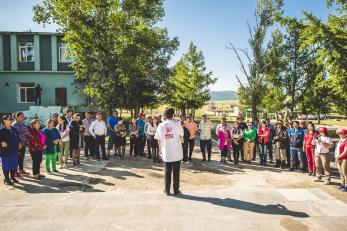Is diversity, equity and inclusion a must?

Content for this blog is taken from the Scaling Pathways series, a knowledge partnership between USAID, the Skoll Foundation, Mercy Corps Ventures and the CASE at Duke University.
An increasing body of research, including that from McKinsey & Co. and Boston Consulting Group, shows that diversity in teams is correlated with increased innovation and increased financial returns. For many social impact organizations, creating equity and diversity internally is not only about the business case (e.g., better range of ideas, amplifying the stakeholder voice), but also about modeling and contributing to the “just world” these organizations are striving to create. Yet many organizations do not fully understand what diversity, equity, and inclusion means for them — uniquely, or in action — nor how it relates to an organization’s ability to drive impact at scale.
“Organizations must think about diversity early on. The further along you get, diversity becomes harder and harder to address as your networks, policies, and culture become ingrained.”
- Everett Harper, CEO of Truss
So, it was no surprise that as we were doing research and interviewing social enterprises for the latest theme study in the Scaling Pathways series, People Matter: Evolving Talent to Drive Impact at Scale, that Diversity, Equity and Inclusion (DEI) arose as a key topic we needed to dive into.
We sought to answer one key question: How can you build and sustain diverse and equitable teams to align with mission and bolster your ability to drive impact at scale?
Several of the world’s leading social enterprises, such as B Lab, Harambee, and Teach for America have great advice on the topic and examples of how they’ve made DEI an organizational priority, such as:

If you’ve been looking for information on DEI or struggling on how to incorporate it into your organization, check out that part of our theme study. It may also bring up some other talent challenges you’ve been having on the road to scale — like talent development or HR infrastructure — that the full theme study might help with.



